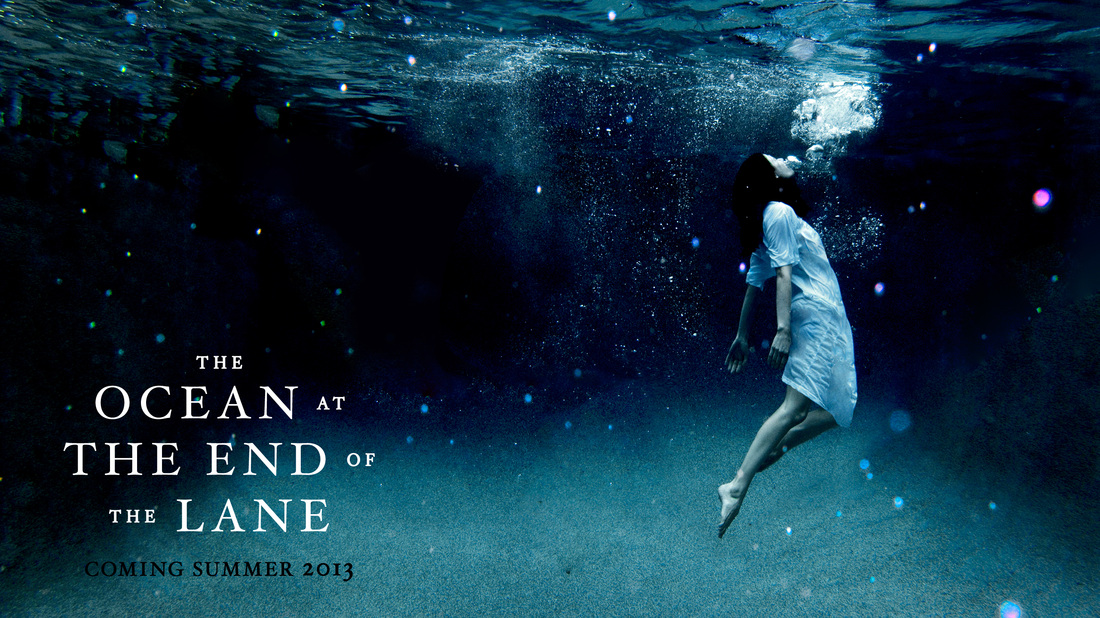It was awesome.
So while Alex took his test, I dove into Ocean at the End of the Lane by Neil Gaiman, paired with Zen in the Art of Writing by Ray Bradbury.
And something clicked.
I've always had this weird, dark place sitting in the back of my head. A rural town where things happen. Little boys in overalls and little girls who can see the future. I wanted to write stories that talked about ghosts, dead grandmothers, prophecies out of the mouths of children that live in old weathered wooden houses at the end of gravel roads. I wanted to write about other worlds and boys who never grow up and men who did too much growing up. But for some reason, for some stupid reason, I thought I was supposed to write "a certain way." I was supposed to learn "how to write a short story" and "what sort of a short story people would want to buy."
So surprise when I read Bradbury, and he said no.
Don't write for fame or fortune, he warns. Don't be a liar. Don't tug at your audience and try to manipulate them. Just write for you. Write those stories that you've carried with you since you were a kid.
Bradbury talks about Mr. Electrico, a sideshow worker from the circus who told him as a child during an act "You will live forever!" The next day, little Ray found Electrico and spent the whole day with him, going around to the different backstage tents and having his own personal tour. At the end, Electrico told Ray that in a past life, the boy had been his best friend and died in the war. Bradbury writes in his book that he doesn't know if he believes in immortality or past lives, but that little boy does. And that little boy has never steered his writing wrong.
This idea of writing from the heart, from the innocence of childhood and magic, is obviously put into place in Neil Gaiman's book. I've been a longtime fan of Gaiman, seeing him advocate for what he wants to write and always being true to his story and characters. I admire his honesty. And I am in awe of his imagination.
In Ocean, he says he wrote a book to explain to his wife who he was. These people who had lived in his head for years now came to the surface and he wrote them all out in two weeks. Ocean was the water on Helen Keller's hand for my brain. It was the sort of book I'd always wanted to write, but didn't know how. And then I saw how Neil put it all together, and I said to myself, "Yes. This is what writing is."
Writing is sitting down and taking all of those parts of yourself you don't think will interest anyone else, but interest you. And you write them. And yes, they will interest others, because although they're old hat to you and they have haunted you for years, turns out we all have different experiences. My knowledge of ghost stories might not have been a thing that you, the reader, grew up with. Gaiman's ocean at the end of this little country lane was a familiar thing to him as a child, but is completely new to our eyes.
And in writing what we are, who we are, what is at the core of ourselves, we write in that ever elusive "voice." We aren't the next Hemingway, like Bradbury warns us not to be. We are what he calls "The New Element." We are true to ourselves, we do not lie, and so we tell one hell of a story.
Write like Bradbury. Write your Electrico. Write your ocean. It may look like a little pond, but like Gaiman says, it's so much more.

 RSS Feed
RSS Feed